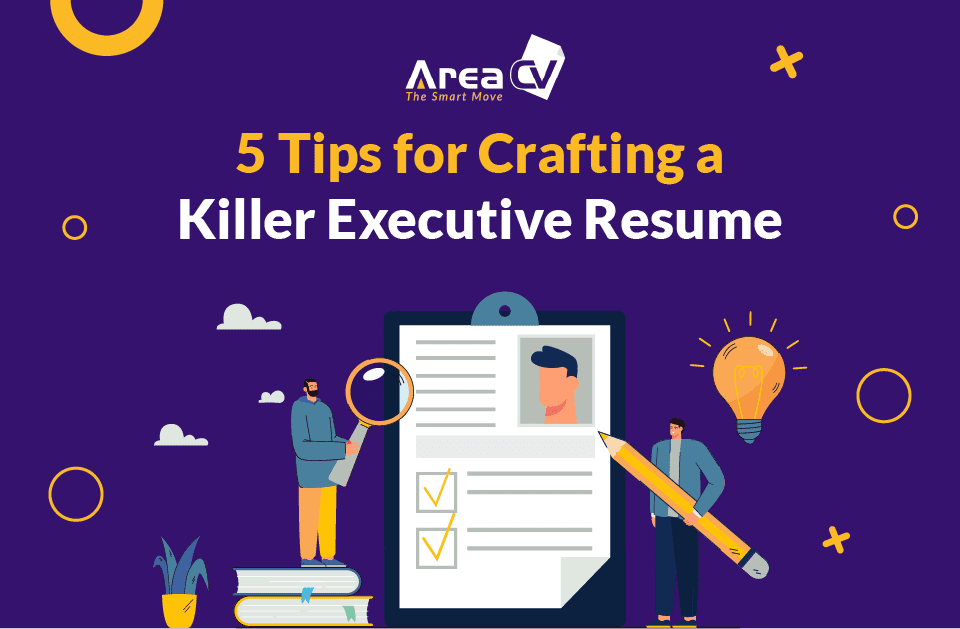
Executive Resume vs. Standard Resume: Key Differences You Need to Know
March 27, 2025Resume Storytelling: Turning Experience into Impact
April 26, 2025Imagine you have a strong and spot-on resume, but the recruiter identifies multiple spelling and grammatical errors. Because of these errors, they lose interest and move on to another candidate. These mistakes can cast doubt on your professionalism, qualifications, and attention to detail.
Even the most impressive resume can be undermined by subtle missteps—from poor formatting and vague language to inconsistent dates or cliché buzzwords. These red flags may seem minor, but they signal carelessness or lack of clarity—qualities no employer wants in a new hire. In this article, we’ll explore the most common resume mistakes that quietly sabotage job seekers, and how to avoid them so your resume reflects your true potential.

1- Typos and Grammatical Errors
Typos and grammatical errors top the list of the most common mistakes that can be found in a resume. A study conducted by CareerBuilder found that 58% of resumes have spelling or grammatical errors. When hundreds of candidates are applying for the same role, then this simple mistake can lead to more chances of rejection.
Recommendation: Proofread your resume at least 3 times before finalising it. You can also use Grammarly and Spell checks to avoid any grammatical and spelling mistakes but do not entirely rely on them. Get it checked by a third person as well to minimise the chances of errors.
2- Using One Generic Resume for Different Roles
Sending one generic resume for multiple roles is a fast track to rejection. Recruiters are always looking for certain keywords and skills whereas a generic resume does not serve the very purpose. Your resume must have a clear direction, it must not appeal to all jobs and industries.
Recommendations: Customise your resume every time you apply for a different role. Start it by adding the role you are targeting at the top and craft your summary and professional experience section as per the skills required for the role.
3- Too Much or Too Little Information
As a resume writer, I have encountered many resumes that are either too lengthy or too precise. Recruiters spend only 5 – 7 seconds to decide if they are going to simply reject it or review it thoroughly. Striking the right balance is key, there is not hard and fast rule in this regard and it can vary from resume to resume.
Recommendations: If you are targeting entry-level roles, a 1-page resume is the best choice. If you have a very detailed and vast professional journey, make sure you are adding 10-15 years of experience and keeping it to 2 pages. Avoid telling stories, emphasise more on your quantifiable contributions. Aim for a clean, concise format that includes enough detail to show your value but doesn’t overwhelm.
4- Unexplained Employment Gap
Gaps in employment history aren’t inherently bad, but if you do not address them properly, they could become a red flag, especially if they are more than two years long. You may have a solid profile, but this gap can make your professional history questionable.
Recommendations: Highlight the professional reason for the gap. If you have been involved in professional development activities during this gap, adding them will give you an edge.
5- Interests and Hobbies
Interests and hobbies are considered old practices in the resume and contribute nothing. Most people are unaware of this fact and end up losing valuable space in the resume. In most cases, interests and hobbies dilute the impact of your resume rather than enhance it. Recruiters want to know what you can do—not what you like to do in your free time.
Recommendations: Save your hobbies and interests for the interview if asked by the recruiter. Moreover, you can add other sections that can stand out and strengthen your skills, such as volunteer experience, language skills, memberships, and awards and honors.
6- Listing Duties Instead of Accomplishments
Recruiters are looking for your contributions in your past roles to judge your capabilities well. Leaving generic routine responsibilities weighs less than your accomplishments. To go above and beyond you must convert and mention your routine duties into result-oriented operations.
Recommendations: To nail your professional experience section, divide your experience into two sections. One section will be a paragraph comprising of your regular operations but tailor them actions focused. The second section will be the bullet points of the top-selling achievements. Below is the best example:

7- Lying or Exaggerating
It can be tempting to inflate titles or achievements, but doing so puts your reputation and job prospects at risk. It is considered serious moral and ethical misconduct. Background checks and reference calls are common, and dishonesty can get you blacklisted from future opportunities.
Recommendations: Be honest throughout your CV. Even if you make it to the interview, it will become very challenging for you to answer confidently. Recruiters can simply hint at the mismatch between your answers and the information mentioned in the CV.
Final Thoughts
A resume should be a polished, strategic document that communicates your value as a candidate. Avoiding these red-flag mistakes is just as important as including impressive qualifications and achievements. Think of your resume not just as a summary of your experience—but as your marketing tool. By making it relevant, error-free, and tailored to each opportunity, you’ll dramatically increase your chances of landing that interview and moving one step closer to your career goals.



